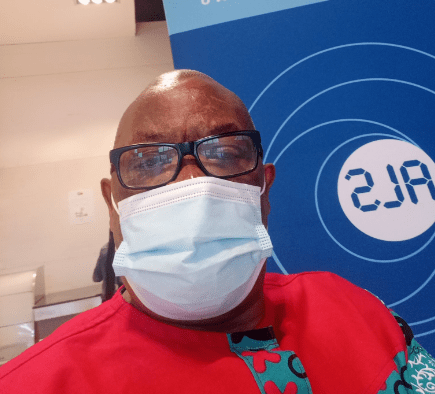Mutegi Njau didn’t know it, but I am because he was

Unlike others who have written movingly about journalist Mutegi Njau, who died last week, I didn’t know him in person.
My connection with him was simpatico – his memorable byline played a minor role in my decision to follow the profession he had chosen for himself.
Njau was among several newspaper writers whose articles Kenyans of my generation who came of age in the 1980s devoured, along with those of Pius Nyamora, Salim Lone, Dorothy Kweyu, Chege Mbitiru, Philip Ochieng, Winnie Ogana and many others the memory of an aging man cannot call up now.
For me, Njau’s passing – coinciding with what many industry insiders see as the sunset chapter of print newspaper journalism as we knew it – is full of sad symbolism. To mourn his death, I request your indulgence to go down memory lane for one second.
For the dreamy youngsters of the early Moi era who followed current affairs keenly – mostly on radio and in newspapers – and yearned to join the journalism enterprise someday, there was a certain romanticism about it.
Part of the appeal was idealistic. Journalism promised an opportunity to write for hundreds of thousands of readers and along the way help bring some positive change in our fledgling nation.
But the inherent danger of the work was also seductive. Some fame or notoriety might come from offending powerful interests and being plucked from your bed in the middle of the night by the jackbooted thugs of the regime of the day.
Interest alone, though, isn’t enough to get you into a profession. The opportunity factor is equally significant. I was born into an extended family of schoolteachers and agricultural extension officers. By the circumstances of my birth, I was destined to join one of these quotidian professions.
I did become a teacher. But the appeal of journalism remained. So I continued my studies in that direction, an intellectual journey that took me to North America and opened up a world that I had never imagined.
In the 1990s, as I was joining the profession, the internet was still largely a curiosity in newsrooms in the United States. No one in the media business could foresee the kind of disruption the technology would bring to the news industry.
By the late 2000s, tech companies like Google and Facebook and digital ad-listing startups had begun to vacuum up ads that newspapers had relied on for decades. As I write this, more than two newspapers are dying every week in the US.
On our shores, the clouds of this disruption should have been seen threatening on the horizon by around 2010. But profit-driven media owners and complacent senior editors thought the turmoil was still far away and dragged their feet in adapting to changes in news consumption.
In the past five years, the reality has hit hard and Kenya’s media owners have resorted to frequent mass sackings to balance the books. Ad-supported journalism is on life support. Corporate interests are too powerful. Shareholders’ profit-taking appetite is insatiable. Employee morale is low.
With print journalism in decline – and lacking conviction and confidence – digital is the exciting new frontier, and there may well be a great future for it. Experiments underway elsewhere have shown there’s hope.
In some parts of the world, a few titles have adapted to the new age and even thrived, relying less on advertising and more on what industry insiders now call reader revenue.
Because ads are moving to social media platforms, readers have never been so valuable to news outlets as underwriters.
Younger news consumers are now the favourite demographic to pander to – a crucial element in media managers’ calculations for the future.
But the young are fickle and elusive. Having become accustomed to getting their information for free on the internet, they are reluctant to pay for online news. And so legacy outlets wither as a journalism era once dominated by print gives way to digital, itself unsteady and uncertain about what it wants to be.
— The writer is a Sub-Editor with People Daily



